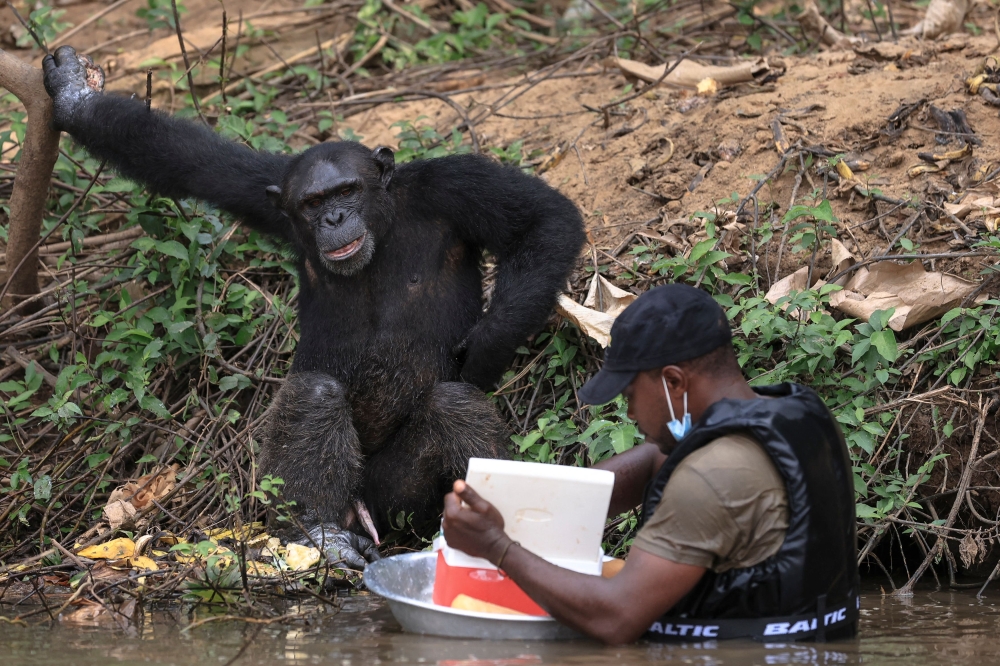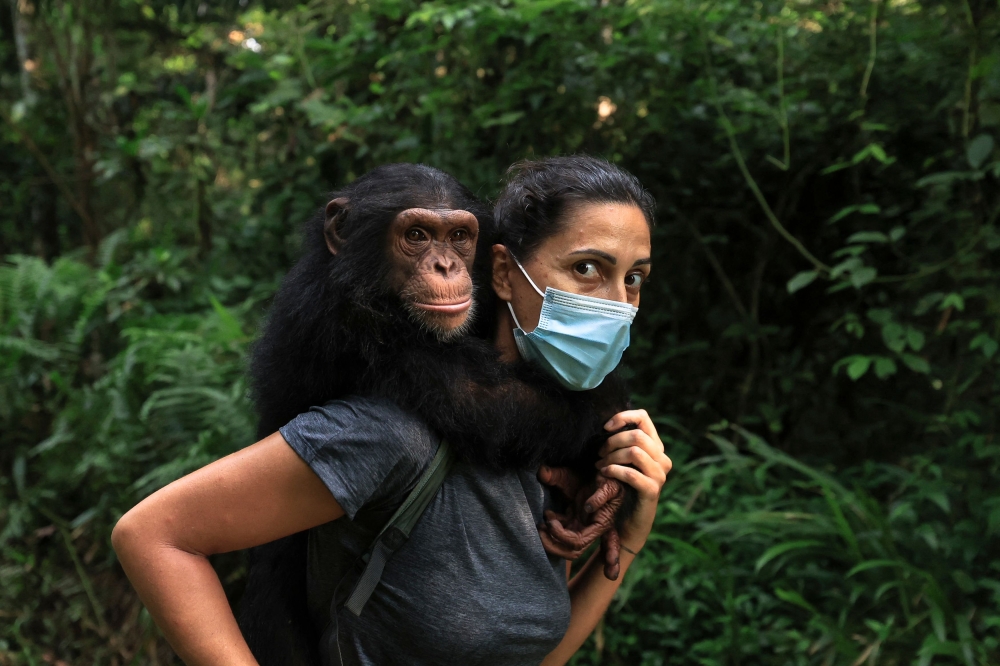MARIENBERG (Cameroon), Dec 29 — They live with mum until well into their teens, are sometimes a bit cheeky and, being highly social animals, struggle to survive alone until they have been taught how to fend for themselves.
So when poachers kill mother chimps for food, keep the young chained in captivity for the exotic pet trade, or the family group is destroyed when its forest home is cleared for commercial palm oil plantations, the orphaned chimps need help.
In Cameroon, the NGO Papaye International runs a sanctuary for the endangered animals on three islands in the Douala-Edea national park.
“The chimpanzees in the sanctuary are chimpanzees that have had a tragic past due to poaching, deforestation and groups that have been killed,” said Marylin Pons Riffet, the 57-year-old French head of the charity.
“We only take in orphaned chimpanzees, who are young and therefore need the helping hand of man after having had a gun pointed at them or their habitat destroyed,” she told AFP.
The charity helps the orphans become re-accustomed to surviving in semi-wild conditions, but on islands away from their only predator — the humans with whom they share 98 per cent of their DNA and a good degree of behaviour.
Populations of common chimpanzees, which used to roam across 26 countries in equatorial Africa, have plummeted since the 1980s, and they are at risk of extinction in the wild.

We are family
Fabrice Moudoungue, a 39-year-old carer, travels by boat every day to bring food to the three rainforest-covered islands on the Sanaga river where Papaye International’s 34 chimps live.
“Here Water Lily! Here Star!” he calls.
The chimps, who recognise his voice, scamper excitedly along the bank of Yakonzo-Okokong Island towards the boat and hug him when he wades out to offer them bananas, coconut, tomatoes and dates.
“They’re not ‘like’ my family. They ‘are’ my family because we spend all the time, every day, with them,” he said with a smile.
Chimps are usually fearful of humans and can be aggressive when scared, especially if they have been mistreated in captivity in the past.
But through daily, gentle contact, Moudoungue and his colleagues at the sanctuary have earned their trust.
“These are young ones that we released about four to five years ago. We visit them all the time to keep contact, so that in case one of them gets sick they will still accept us,” said manager Francois Elimbi.
When he reaches Yatou Island, Honey wraps him in her long black arms.
The mature female chimp was released there in 2019 after needing almost 10 years of care at the sanctuary.
“It’s inexplicable, very powerful. It even gives you goosepimples when a monkey hugs you. That means he still recognises you. You’re his friend,” Elimbi said.

Special bond
Tchossa and Conso are still too young and inexperienced to be released onto the islands.
They have a big cage near the carers’ lodgings on Yatou where they play on their swings and sleep in hammocks, awaiting their daily walk with the staff to rediscover the forest.
Alioum Sanda, 67, has a special bond with Conso.
“He has the marks of the shackles because after the poachers killed his mother, the little one didn’t trust them so they shackled him,” he said, pointing to the scars on the chimp’s body.
He recalled how Conso had changed since his arrival at the sanctuary.
“He was very aggressive considering the mistreatment he’d received when he was in Douala. It took at least two months before he gave me his trust,” Sanda recalled.
“I would put nappies on him. I would wipe his wounds.”
Conso, now fully recovered, started dancing around, sensing it was nearly time for his daily outing.
Sanda took his bony hand.
“If we don’t do what we are doing, they will disappear,” he said softly.
“We’ll just say then that there used to be an animal called a chimpanzee. We must try to preserve them so that future generations — our grandchildren — can see them too.” — AFP






















